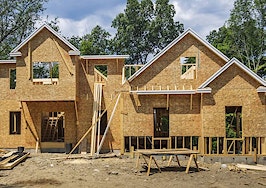March delinquency and foreclosure rates do not yet reflect the impact of the coronavirus outbreak and subsequent closures, data analytics provider CoreLogic announced.
Nationwide, 3.6 percent of mortgages were in some stage of delinquency in March, the month that the coronavirus outbreak first hit the U.S. in full force. The number is the same as it was in February but down from 4 percent at the same time last year. Foreclosures, in which one’s home is seized by the government due to the owner’s inability to pay, are at 0.4 percent — same as last month and as in March 2019.

CoreLogic
As the numbers are released for two months before, they do not yet reflect the impact of business closures on the economy. The rates are still at historic lows but that is something that CoreLogic warns will inevitably change. Homeowners who worked in sectors such as dining and entertainment and lost their jobs due to the pandemic could struggle to make payments on their mortgages, creating a ripple effect that affects the entire market.
“The COVID-19 pandemic has shocked our economic system and led to unprecedented job loss, reducing the ability of affected families to make their monthly mortgage payments,” Dr. Frank Nothaft, chief economist at CoreLogic, said in a prepared statement. “The latest forecast from the CoreLogic Home Price Index shows prices declining in 41 states through April 2021, potentially erasing home equity and increasing foreclosure risk.”

CoreLogic
States whose economies are particularly dependent on tourism, transportation and food service are at most risk of seeing delinquency rates skyrocket. Washington, Nevada and Hawaii saw the highest numbers of unemployment claims in the country — while this has not yet reflected on delinquency rates, the pandemic’s impact could extend months or even years into the future.
“The first three months of 2020 reflected one of the strongest quarters for U.S. mortgage performance in recent history,” Frank Martell, president and CEO of CoreLogic, said in a prepared statement. “The build-up in home equity over the past several years, government stimulus programs, and lower borrowing costs have helped cushion homeowners from the initial financial shock of the pandemic and kept widespread delinquencies at bay during the first months of the recession.”



















